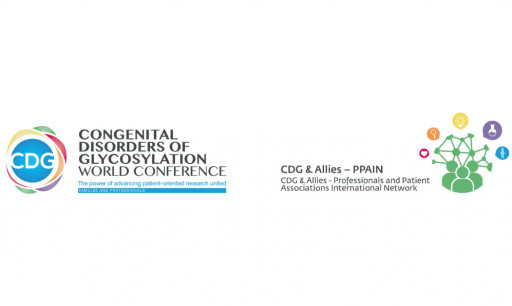CDG and Allies publishes methodology to transform clinical management guidelines in lay language: a pioneer advance to empower and improve care for CDG families, and enable communication among doctors and families

Lisbon, 21 October 2022- CDG and Allies continues expanding its efforts to empower the CDG community and publishes for the first time in the CDG field, a methodology to transform complex and technical clinical management guidelines in lay language. Clinical management guidelines (CMGs) are decision support tools for patient care used by professionals, patients, and family caregivers. Since clinical experts develop numerous CMGs, their technical language hinders comprehension and access by nonmedical stakeholders, notably CDG families. CMGs are essential tools for families and should be made available to them, as they would help in the care and management of CDGs.
“The involvement of caregivers and patients in CMG has not been systematically established. Additionally, professional CMGs, created mainly by and for clinical experts, are complex and use medical jargon, which hinders their comprehension and use by nonmedical stakeholders. As a result, most family caregivers and patients struggle to understand them, particularly those with lower health literacy levels”, said Vanessa Ferreira (CDG and Allies researcher and co-founder, president to APCDG, and sister to a person living with CDG).
The use of plain language in health literacy initiatives has provided positive effects in health communication, comprehension, and usability among nonclinical stakeholders. Plain language is the use of basic, assertive, and clear phrases that non-medical experts can understand.
“Moreover, health literacy directly influences adequate health-promoting and preserving behaviors, the quality of health care, access to medical innovations and consequently patients’ quality of life and health care expenses and cost”, concluded Vanessa Ferreira.
Although this study has been piloted inside the PMM2-CDG community, it has the potential to benefit all CDG community members and ultimately enhance the quality of life for CDG patients. In addition, it has enormous potential for other CMGs to help communities affected by rare diseases.
Learn more about this publication Here
About CDG
CDG are a group of over 160 inherited diseases that affect glycosylation, a process by which all human cells accumulate long-chain of sugars that are attached to proteins or lipids (fats), essential for many biological functions. These diseases are highly disabling, with a high pediatric mortality rate and a significant negative impact on the quality of life of patients and families.
About CDG & Allies
CDG & Allies are a family-driven international research network dedicated to CDG and related diseases, based at FCT, NOVA University. For more information, please consult: CDG & Allies
About the World Organization for Congenital Disorders of Glycosylation
The World Organization for Congenital Disorders of Glycosylation (WCDGO) is the unified voice of people living with CDG. It aims to transform the world's understanding of CDG and advocate for those living with CDG. WCDGO has a strong, common voice with governments, researchers, clinicians and industry to promote research, diagnosis, treatment and services for CDG. WCDGO is led and operated on a volunteer basis by the CDG & Allies, and CDG Patient Groups. For more information, please consult: WorldCGD.org
About APCDG
The Portuguese Association for Congenital Disorders of Glycosylation and other Rare Metabolic Diseases (APCDG) is a non-profit organization aimed at promoting innovative research that makes a difference in the lives of patients and their families. The actions of this association are carried out nationally and internationally. For more information, consult: APCDG


